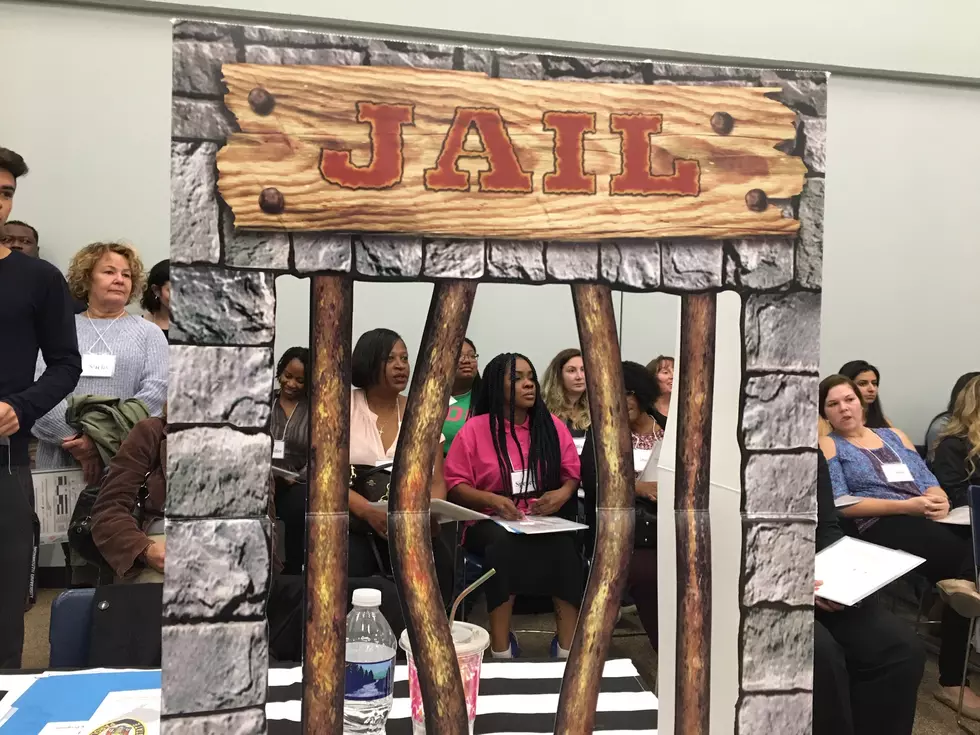
This is what it’s like to restart your life after prison in NJ
WEST LONG BRANCH — The professionals who work with convicted criminals before, during and after their time behind bars, as well as students interested in criminal justice and social services, received a crash course this week in life immediately after prison.
And it wasn't pretty.
By the end of an hour-long simulation program at Monmouth University, which allowed attendees to walk in the shoes of a released offender attempting to reenter society, about three-quarters of the "released criminals" were back in "jail."
"There are conditions to parole supervision, and one of them is you need to have a job with a paycheck," said New Jersey State Parole Board Chairman Sam Plumeri. "And you need to stay infraction-free."
Plumeri said the reentry simulation, the sixth run by the Parole Board, helps professionals understand the frustrations and hopelessness faced by many individuals attempting to regain their footing after prison. Something as simple as getting your hands on a license, in order to achieve everything else, can be a hassle, he said.
"It's very frustrating, because even if you do try to get employment, you might not have your ID," said Christopher McKelvey, a Department of Labor employee who was back in the slammer within 20 minutes of the simulation — every 15 minutes represented a week out of jail.
"Everything with a criminal record on top of it, it's a lot harder," added Carolyn, a Monmouth student who managed to secure a part-time job during the simulation, but couldn't afford a bus ride to actually show up every day.
Each attendee was given a unique backstory, including a name and a reason for their original prison sentence. Packets handed to the attendees also spelled out how ready they may or may not be for the outside world — whether they had photo-identification, for example, or any money or valuables to help them afford transportation, food or court-ordered appointments.
"I have a guitar and some jewelry and $30," said Nina, a participant who was playing the role of "Ronald" for the event.
Attendees had the chance to pawn personal items or apply for loans. Weekly urine tests were the wild card for many offenders — participants randomly chose a card that determined whether they had tested positive or negative for recent drug use.
Despite the challenges faced by former inmates, New Jersey's current recidivism rate is just 31%, according to the state's latest figures which look at the years 2014 through 2016. That's compared to a national recidivism rate of 68%, according to the National Institute of Justice.
Down from about 4,000 in the year 2000, there were approximately 1,600 parole revocations in New Jersey in 2018. The state's prison population decreased by about 10,000 between 2000 and 2018.
On Tuesday, a state commission released a report detailing 100 ways the Garden State can improve the reentry process for released criminals.
More from New Jersey 101.5:
Contact reporter Dino Flammia at dino.flammia@townsquaremedia.com.
More From New Jersey 101.5 FM









